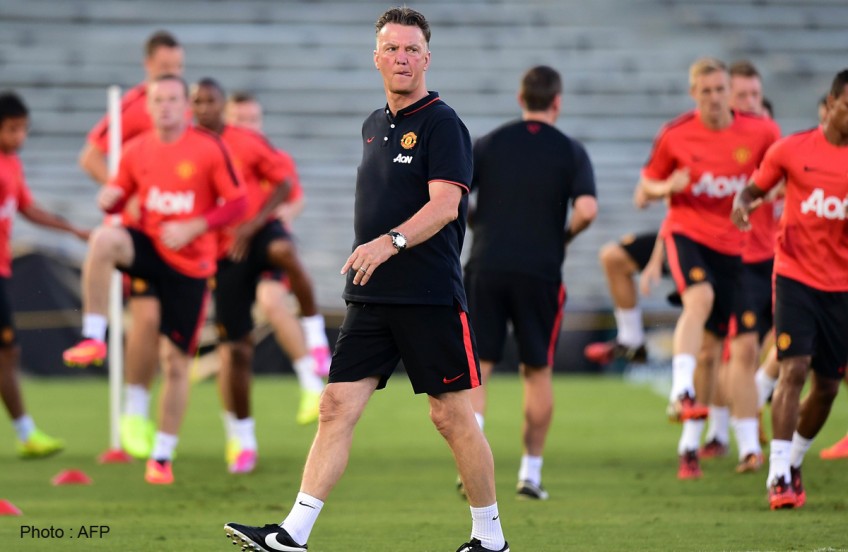EPL: I'm the boss and I know best, says van Gaal


If anyone doubted the veracity of the Louis van Gaal legend, they will doubt no longer.
In the short time that the Dutchman has been in charge of Manchester United, he has opened fire on his predecessor, his rivals, his own players and his own superiors.
This is what happens when you hire the most notoriously pugnacious manager in European football. It is exactly what United needed.
Under David Moyes, the club lost their swagger. Led by an inherently good man who was nevertheless reluctant to betray his austere, sensible roots, the club forgot what they were.
They are Manchester United. They do what they want. Or at least they are supposed to do what they want.
Under Moyes, they were simply too shy to do what they wanted. They played cautious football, they made cautious signings, they avoided risk. That ideology has now changed.
Van Gaal believes, with no small amount of justification, that he knows better than everyone.
In Amsterdam, he built one of the greatest club sides of the last 50 years. He won more titles with Barcelona, more still with Bayern Munich. He even won one with AZ Alkmaar.
Why wouldn't he believe in himself?
So when he says that the United squad are "broken" and "unbalanced", it would be wise to listen.
Even in 21st-century football, where the players seem to hold all the power, there is room for the old-fashioned autocratic dictator. Jose Mourinho, once a pupil of van Gaal, is clear evidence of that.
The patterns are well established: Divide and conquer; ruthlessly punish 'pour encourager les autres'; show no fear in the face of your enemies, both within and without.
This is van Gaal's way.
His swipe at Mourinho this week was effortless, but highly efficient. In one soundbite, he made it clear that Chelsea will not intimidate him and that he will not play those kind of games in public.
The debate is over and Mourinho has given away his position. By attacking United, he revealed that he deems them a threat. First blood to van Gaal.
Criticism of Moyes is required to create a narrative for the future and it is hardly without justification. The squad are obviously unbalanced, lacking cover at the back, on the left and overloaded with attacking midfielders.
Mistakes were made at all levels last season and they cannot be rectified immediately. Criticism of his players is necessary to prevent dissent. They must fear van Gaal as they never feared Moyes.
If Luke Shaw was under the impression that his price tag guaranteed his inclusion in the team, he has now been reminded of his true status.
Van Gaal's wrath
He trains alone until he is deemed fit enough to train with the senior side. His feet are now firmly rooted to the floor. The other players will have noted this with interest. Even the people who hired the Dutch manager have felt his wrath now, stung by his attacks on their pre-season schedule.
It is a commonly used tactic in business to take a job and then immediately start a fight with your superiors, if only to make them think twice about starting one with you.
Human nature guarantees that Ed Woodward and his boardroom colleagues will be even more reluctant to say anything out of turn now.
Van Gaal is doing this because he knows, even without the example of his predecessor, that you do this job your way, or you get to do it for only a very short period.
All the respect and manners in the world didn't save Moyes. Van Gaal knows that if other people get upset, they are merely collateral damage.
Ultimately, the success or failure of his methods will be determined by the success or failure of his team.
If United start the season like an express train, the verdict will be that his fire has re-ignited the club. Anything less than a permanent presence in the top four and it will be a very different story.
Van Gaal has one chance to restore United to their perch before a pattern of failure sets in.
Don't doubt for a moment that he will take it. No matter who he upsets.
This article was published on July 30 in The New Paper.
Get The New Paper for more stories.